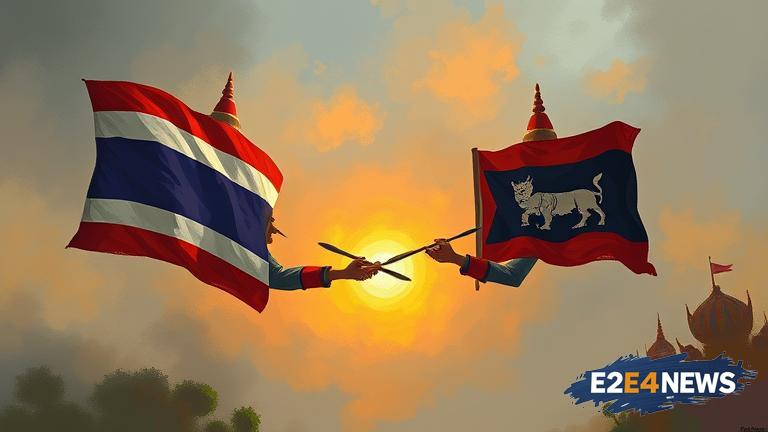The situation between Thailand and Cambodia has escalated, with both countries trading allegations of truce-breaking. The conflict began when Thailand accused Cambodia of violating a ceasefire agreement, prompting Cambodia to retaliate with similar claims. The exchange of accusations has raised concerns about the stability of the region. Thailand’s military has been on high alert, with troops deployed along the border. Cambodia has also increased its military presence, leading to a heightened sense of tension. The ceasefire agreement was put in place to end clashes between the two nations over a disputed border area. However, the recent allegations suggest that the truce may be on the verge of collapse. The Thai government has issued a statement denying any wrongdoing and blaming Cambodia for the escalation. Meanwhile, Cambodia’s government has accused Thailand of attempting to provoke a conflict. The international community has called for calm and restraint, urging both nations to respect the ceasefire agreement. The United States, China, and other regional powers have expressed concern over the situation, warning that an escalation could have far-reaching consequences. The Association of Southeast Asian Nations (ASEAN) has also issued a statement, urging Thailand and Cambodia to engage in dialogue to resolve their differences. Despite the calls for calm, the situation remains volatile, with both sides refusing to back down. The dispute has sparked protests in both countries, with demonstrators calling for their governments to take a tough stance. The economic implications of the conflict are also being felt, with trade between the two nations slowing down. The tourism industry has also been affected, with travelers canceling plans to visit the region. The conflict has also raised concerns about the humanitarian situation, with civilians living in the border area facing the risk of displacement. The United Nations has issued a statement, calling for the protection of civilians and the respect of human rights. The situation is being closely monitored by the international community, with diplomats working behind the scenes to try to find a resolution. The Thai and Cambodian governments have been urged to engage in talks to resolve their differences and find a peaceful solution to the conflict. The use of diplomacy is seen as the best way to resolve the situation, with military action being considered a last resort. The conflict has also highlighted the need for greater regional cooperation and the importance of respecting international agreements. The ASEAN region has been working towards greater integration and cooperation, but the conflict between Thailand and Cambodia has raised questions about the effectiveness of these efforts. The situation is a reminder that even in a region that has made significant progress in terms of economic development and cooperation, conflicts can still arise. The international community will be watching the situation closely, hoping that a peaceful resolution can be found and that the region can continue to move forward in a positive direction.
